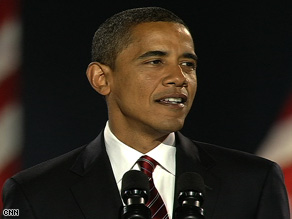The American Worker
Friday 21 November 2008
by: Rick Kepler, t r u t h o u t | Perspective

Members of the United Auto Workers at a monthly benefit meeting. (Photo: Getty Images)
I am an American worker, and you are damn right I want the wealth to be shared and spread. I am talking about the wealth my hard work helped to create, but was taken from me by George Bush's base, the very rich, or as I know them, my corporate bosses. For the past eight years I have watched W.'s and McCain's (Country Club First) base grab the largest share of our country's wealth. Where did they take it from? They took it from my family's pocketbook, and my co-workers' families' pocketbooks. They stole the wealth that I was trying to build for me and my family when they stripped my pension plan from me and told me to invest in a 401k. Then they stole most of that 401k and other workers' 401k savings with this economic meltdown. This was a massive transfer of wealth from the workers' pockets into the already stuffed pockets of the rich. My retirement savings and my coworkers' savings all across America have been looted by the corporate bosses, who just got bailed out while we got left out. Again!
The American worker, whether black, brown, white, red, yellow, or rainbow color, has been fleeced over these past eight years. We are the ones who go to work every day. We don't own our places of work, nor do we help manage them. We just go in and do the job. And we must be doing one hell of a good job because we are told that we are the most productive workers in the world. We are working longer and harder, but our paychecks keep shrinking! Where are those productivity gains going then? Not into our pockets. Our standard of living has been going down these past eight years ($2,000 less in family income since W. took office) This is another damn transfer of wealth into the hands of the extremely rich.
Their greed is insatiable. Take our family's health care. They do. They keep passing on their increased costs to us, or they just drop coverage for the worker completely. That means we either join the 50,000,000 who have no health care, or we end up having to buy it privately, thus eating up a huge portion of our family's income. If we manage to hang onto our health care plans, our deductibles, co-pays, and out-of-pay contributions keep skyrocketing. This amounts to another massive transfer of wealth from our pockets into the overflowing pockets of our corporate bosses.
The list goes on for the American worker. We saw overtime pay stripped from millions of workers during this past nightmare eight years. The worker was still working overtime, but due to a new "boss law" passed by W. and McCain's party that assists these thieves, the workers didn't receive overtime pay because they were declared exempt. They also weakened the workers' health and safety standards or just plain didn't enforce the laws already on the books. As a result, the American worker pays the price in lost days due to accidents from unsafe conditions or from lingering, expensive illnesses suffered from unhealthy working conditions. This too is a massive transfer of wealth from our pockets into our corporate bosses' bulging pockets.
To further sweeten their own pots, they took full-time jobs and converted them to part-time with no benefits, or they just made their employees line up and reapply for their exact same jobs at half the pay. Are we beginning to see what a true transfer of wealth looks like? So, do I want to see a spreading of the wealth? You bet your sweet hind-end I do. But all I ask of Obama is to give me and my co-workers the ability to retrieve some of the wealth that has been stolen from us.
Strengthen the laws that give workers the right to organize and bargain for a contract with our bosses. The current laws on the books have been torn to shreds by W. and McCain on behalf of their base. This is just part of their attack on American workers. Under globalization, the bosses seek a much cheaper workforce, which always means non-union, which means "can't fight back." That is why they have gutted the laws that protect workers. The laws that once gave us a level playing field with our bosses have been rendered useless, including our legal right to strike. That law said I had a right to strike, and could.
The American worker doesn't want a handout. Never did. We do want a hand up from our government. We still believe and have hope that this is a government of, by and for the people. We do want to know that our government will finally stand with us against this onslaught, this Robin Hood in reverse, being conducted by the bosses against the workers. The bosses know that W. and McCain have been on their side for the past eight years - and so do we workers. We just want our government to now stand on our side as we stand up against this corporate attempt to create third world working conditions right here in America. Restore our right to fight for a better living for ourselves and our families, and let the power of pissed-off workers, united in struggle, spread corporate America's stolen wealth back into the pockets of those whose pockets got picked these last eight years - the American worker.






